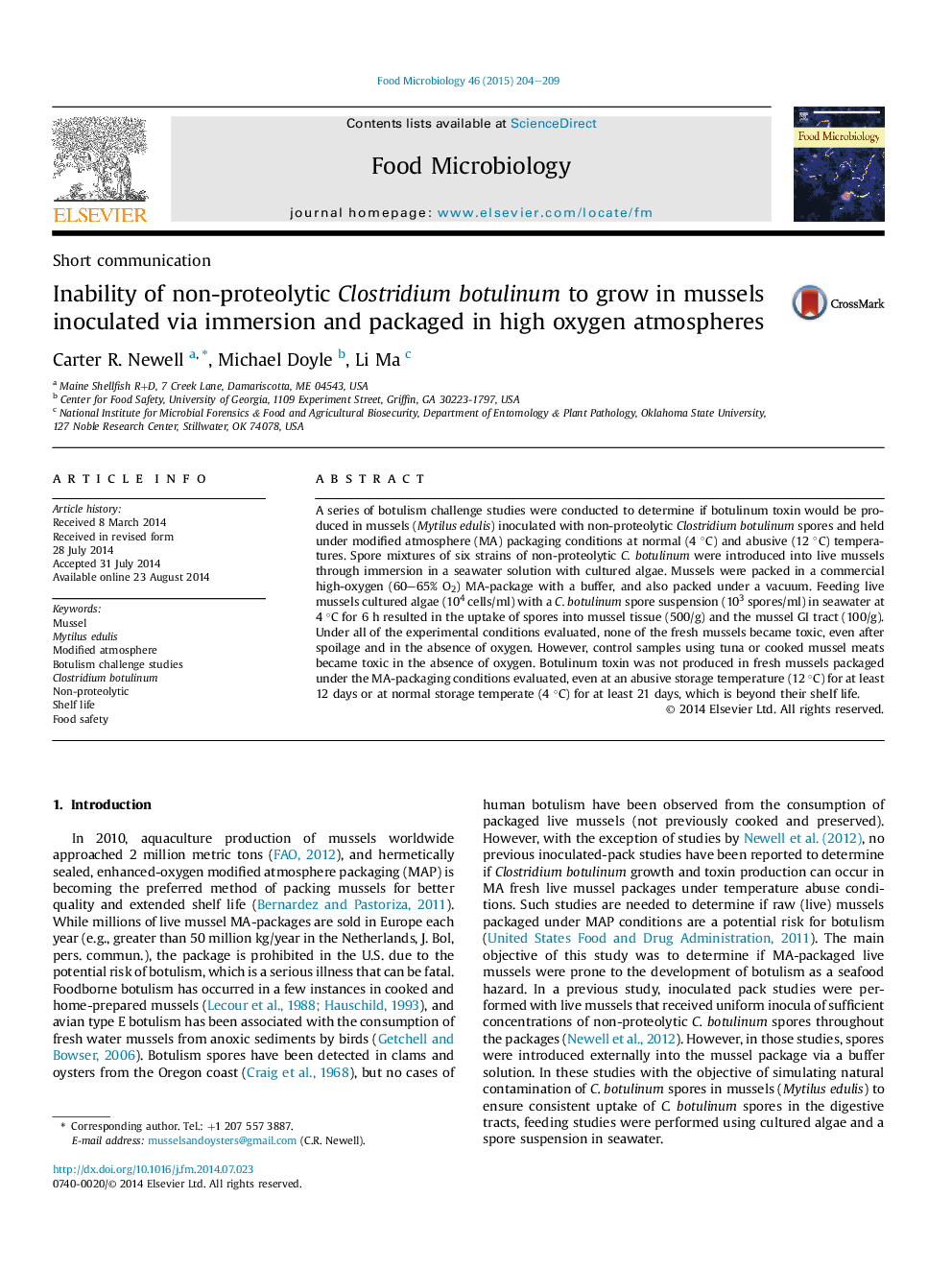| کد مقاله | کد نشریه | سال انتشار | مقاله انگلیسی | نسخه تمام متن |
|---|---|---|---|---|
| 6288540 | 1616254 | 2015 | 6 صفحه PDF | دانلود رایگان |
عنوان انگلیسی مقاله ISI
Inability of non-proteolytic Clostridium botulinum to grow in mussels inoculated via immersion and packaged in high oxygen atmospheres
ترجمه فارسی عنوان
ناتوانی کلستریدیوم بوتولینوم غیر پروتئولیتیک در رشد موشهای کشت شده از طریق غوطه وری و بسته شدن در جوهای اکسیژن بالا
دانلود مقاله + سفارش ترجمه
دانلود مقاله ISI انگلیسی
رایگان برای ایرانیان
کلمات کلیدی
موضوعات مرتبط
علوم زیستی و بیوفناوری
علوم کشاورزی و بیولوژیک
دانش تغذیه
چکیده انگلیسی
A series of botulism challenge studies were conducted to determine if botulinum toxin would be produced in mussels (Mytilus edulis) inoculated with non-proteolytic Clostridium botulinum spores and held under modified atmosphere (MA) packaging conditions at normal (4 °C) and abusive (12 °C) temperatures. Spore mixtures of six strains of non-proteolytic C. botulinum were introduced into live mussels through immersion in a seawater solution with cultured algae. Mussels were packed in a commercial high-oxygen (60-65% O2) MA-package with a buffer, and also packed under a vacuum. Feeding live mussels cultured algae (104 cells/ml) with a C. botulinum spore suspension (103 spores/ml) in seawater at 4 °C for 6 h resulted in the uptake of spores into mussel tissue (500/g) and the mussel GI tract (100/g). Under all of the experimental conditions evaluated, none of the fresh mussels became toxic, even after spoilage and in the absence of oxygen. However, control samples using tuna or cooked mussel meats became toxic in the absence of oxygen. Botulinum toxin was not produced in fresh mussels packaged under the MA-packaging conditions evaluated, even at an abusive storage temperature (12 °C) for at least 12 days or at normal storage temperate (4 °C) for at least 21 days, which is beyond their shelf life.
ناشر
Database: Elsevier - ScienceDirect (ساینس دایرکت)
Journal: Food Microbiology - Volume 46, April 2015, Pages 204-209
Journal: Food Microbiology - Volume 46, April 2015, Pages 204-209
نویسندگان
Carter R. Newell, Michael Doyle, Li Ma,
